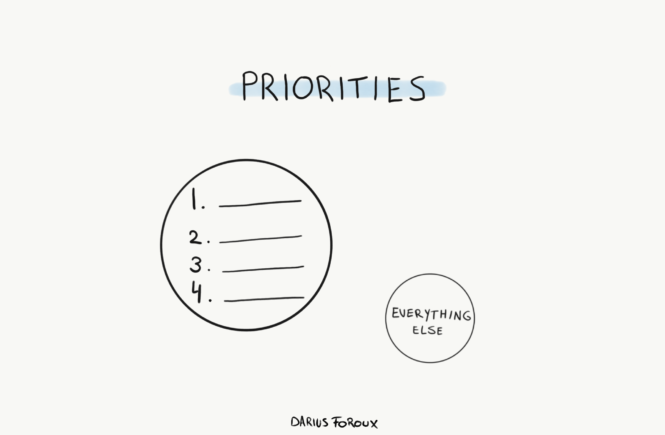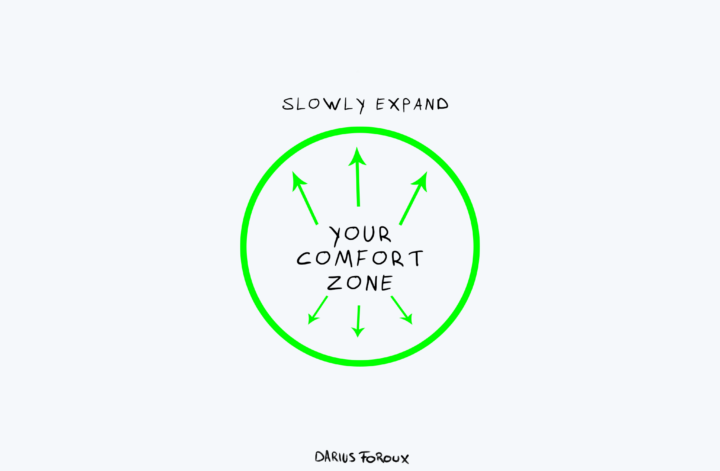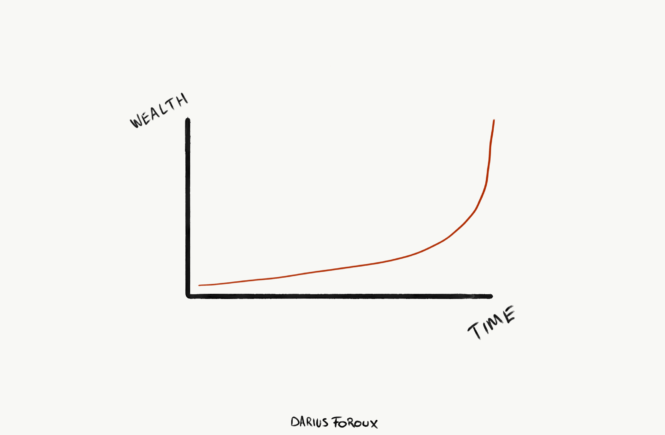Whenever you say yes to something, you’re automatically saying no to other possibilities and potential benefits. It’s called, “Opportunity Cost.”
Most of us have heard of it or are aware of this concept on a subconscious level. We realize that we can’t do everything we want at the same time. But opportunity cost is more important to your life and career than you think. In recent years, I’ve been more aware of this phenomenon, and as a result, my career has improved massively.
In this article, I share how you can use the concept of opportunity cost to make better decisions. But first, let’s talk about what opportunity cost is.
Simple definition of opportunity cost
It’s a major concept in economics. Simply, opportunity cost represents the potential benefits that we miss by choosing one option over another.
There are two types of opportunity costs: Explicit and Implicit. Explicit costs, also called Accounting costs, are often used in business and economic terms. We’ll focus on the latter.
Implicit costs are often invisible. Time, for example, is an intangible cost. I could be creating a YouTube video right now, instead of writing this article. I have to decide: Which action gives me better results for my blog? More on that later.
Risks of ignoring opportunity cost
Since there’s usually no concrete price, it’s easy to overlook the cost of hypothetical opportunities. But we’re always faced with these costs everyday, even if we’re not aware of it. If neglected, opportunity costs will negatively impact our life, career, and relationships. There are two main risks.
1. Working on autopilot
A career that’s on autopilot means you’re working without getting anywhere. I’ve been there, and it feels hopeless. You show up, put in your hours, go home, and get paid. Rinse, wash, repeat. But you end up with nothing: No important knowledge, experience, or assets.
Going on autopilot can be tempting because we all need to pay our bills. But if you want to have a career that gives you inner satisfaction, you can’t afford that.
I always refer to Peter Drucker’s book, Managing Oneself, to remind myself about what’s important. As he said in one of his columns:
“There is surely nothing quite so useless as doing with great efficiency what should not be done at all.”
2. Missed ROI
Could you be spending your time on something more effective right now? There are many things we do that don’t give us a return on investment. Because that’s what our time and resources are: Investments.
Binge-reading the news, scrolling through your social media, checking your emails, going through your website’s stats without a specific reason—these actions all consume time.
You wake up, say you’ll just, “check something,” and before you know it, 2 hours have passed and you’ve done nothing productive. End result? Nothing.
Prioritize your options
So what does all of this mean? If you want to become more aware of opportunity costs in your career, start prioritizing the things that matter to your work.
Let’s take this website. I always prioritize content over design. Both content and design are important. A cluttered blog destroys the reading experience; but useless content will not attract any readers. You see? One is more important than the other. That doesn’t mean I neglect my website’s design. I simply allocate more energy working on my content because that’s my blog’s main priority.
Prioritizing is as simple as making a list. Here’s what my list looks like when it comes to my blog:
- Publish one quality article a week—this is my one thing. It’s the most important thing for my blog. No articles? No blog.
- Offer quality products—My blog generates income through offering courses and books. No income? No blog.
- Acquire new knowledge—I’m constantly learning new things. Without that, I can’t publish new articles, books, and courses.
- Listen to readers—This helps me to stay connected with the people who read my blog. The input from readers gives me feedback and inspiration to keep improving.
- Other stuff—My list is longer, but the ranking is not that important beyond my top 4. Prioritization is all about knowing what’s most important.
You can make a list of your top 5 priorities if that makes more sense for your career. But I don’t recommend creating a long list of 10 or more items. Realistically, we can’t focus on too many things at the same time. And to clarify, the above example of my top 4 is for my career—not my whole life.
If you want to give this strategy a try, make a list, keep it in a visible place, and live according to those priorities. Don’t waste your time by chasing opportunities that don’t truly contribute to your top priorities.
Personal example: Don’t get ahead of yourself
Let me give you an example to show you how difficult it is to master opportunity cost. Even though I have my priorities straight, I still come up with new ideas and immediately start working on them. But along the way, I realize it doesn’t align with my top priorities. And I could’ve done something else with that time.
When the Covid pandemic started, I came up with the idea for an online course about remote work. I asked a few people what they thought and everyone was positive, so I immediately started creating the course. But I didn’t take enough time to listen to my readers.
There was also something else I forgot. I was also working on another course about starting an online business. It’s called digitalbusiness.school. I was working on that course for almost a year. And it was something many of my readers had actually asked for.
But because I got ahead of myself (and forgot priority #4), I had to pause my work on digitalbusiness.school for nearly three months. I could’ve finished my business course, launched it, and generated more profit than the course on remote work.
That’s the opportunity cost here. But instead, I created a small course that didn’t yield the same results. In fact, digitalbusiness.school was received way better than the course on remote work.
Eliminate options
Our first ideas are not always the best. Just like my decision to create one course over the other. I should’ve weighed my options more strategically, before diving in. In this case, the deciding factor was my priority, “listen to readers.” I ignored that when I created the course about remote work. My readers actually wanted the business course more.
At any given time, we have many options when it comes to spending our time. Should you go drinking with friends, or stay at home and finish that book about investing? Should you check your emails in the morning, or write in your journal? Should you spend less money and more time by taking the bus to work, or buy a car?
We can’t do everything we want at once. We have to make choices. The paradox of choice states that more options aren’t always better. Nowadays, we’re bombarded with various possibilities. How do we know which to choose?
Getting clear on your priorities will help you eliminate many options. That’s the secret to better decision making.
There are always different ideas that can excite us, or new opportunities that come knocking on our doors. It’s up to us to analyze these ideas and opportunities properly. When you’re faced with a decision, always ask yourself, “Does this truly align with all my top priorities?” Only pursue the opportunity if you answer “yes” with confidence.




